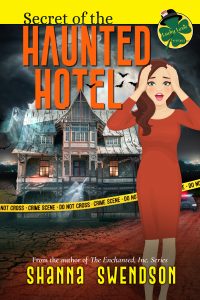movies
Pixar Therapy
I recently read a book on dealing with stress and burnout, and one of the things they recommended was completing the stress cycle. The physical responses we have to stress are fight, flight, or freeze, but we can’t respond that way to most of the things that stress us out in the modern world (or we’d get in trouble if we did). If you run into a lion while hunting, you’d run back to your village, and then you and the other villagers might fight it. You’d have a cathartic moment when you knew you were safe and your body could move out of the stress response. You don’t really get the same cycle of stress and release when your coworker gets annoying in a meeting, so you stay in a state of stress.
One way to deal with this stress is through exercise, letting your body feel like there’s been a fight or flight so it can relax. Another way is to work through emotions. Have a good laugh or cry. Watching a tearjerker movie can work you through the cycle because if it’s done well, it covers a full emotional journey that comes to a satisfying conclusion. Reading that, I realized that would make Pixar films actually work as therapy. You go on an emotional journey that makes you laugh and cry and come out feeling transformed (and they’re very conscious about doing that).
So, last weekend, I opted for some Pixar therapy on my movie night and watched Onward, the movie that kind of fell between the cracks because it was released a couple of weeks before the pandemic kicked in and movie theaters closed. It was utterly delightful and a perfect example of that laugh/cry emotional journey.
The story is set in a high-fantasy world that’s moved into modern times, like what would happen if a Dungeons & Dragons setting got electricity and technology but forgot about magic. It’s a modern American suburb, but with mushroom tract houses and trolls running the toll booths on the turnpikes. In this world are two teen elf brothers whose father died while the older was very young and before the younger was even born. The younger feels deeply the lack of a father and has very little confidence. The older is a fantasy geek who wishes for the kind of life from the old days before people forgot their magical heritage. On the younger’s 16th birthday, they get a wizard’s staff, a magical stone, and spell that will allow them to spend one day with their father. They get the lower half reconstituted, but then things go wrong, and they’ll need another stone to get the rest of their father so they can actually talk to him. Off they go on an epic quest with their father’s legs, relying on the older brother’s knowledge of fantasy and the younger brother’s latent magical abilities, but the longer it takes them to get what they need to complete the spell, the less time they’ll have with their father.
This movie is laugh-out-loud funny, both using and poking fun at established fantasy tropes, while at its heart it’s a serious and emotional story about loss, family bonds, parenthood, and finding confidence. During the big, climactic sequence, I was alternating between laughing and sobbing. It’s perfectly cast, with Tom Holland (Spider-Man) as the timid younger brother and Chris Pratt (Guardians of the Galaxy) as the brash older brother. I suspect the animators were inspired by the actors because you can see their facial expressions and mannerisms in the animated elf characters. I’m sure there were little details I missed in all the fantasy worldbuilding, so I’m sure I’ll be watching this one again.
This one might be either rough or cathartic for people who’ve lost a parent, depending on where you are in the grieving process. It might help a kid who’s lost a parent process their feelings, or it could just rub on the emotional raw spot, so be aware of this before watching.
It gave me just the right emotional journey I was looking for, and the balance between deep and silly was so good that I’m going to have to analyze the writing to figure out how to pull that off.

 Secret of the Haunted Hotel comes out tomorrow, and you should also be able to order the paperback. It will eventually be in online stores beyond Amazon, but I don’t know if that listing has propagated yet.
Secret of the Haunted Hotel comes out tomorrow, and you should also be able to order the paperback. It will eventually be in online stores beyond Amazon, but I don’t know if that listing has propagated yet.